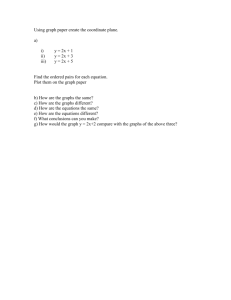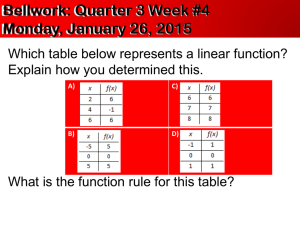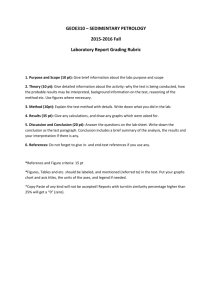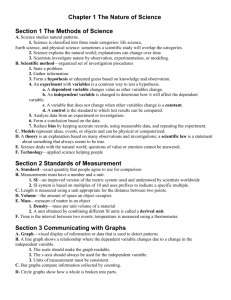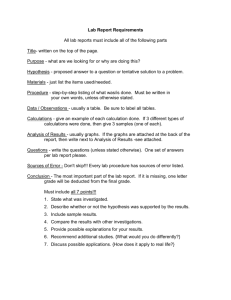P 9.1 Rubric
advertisement
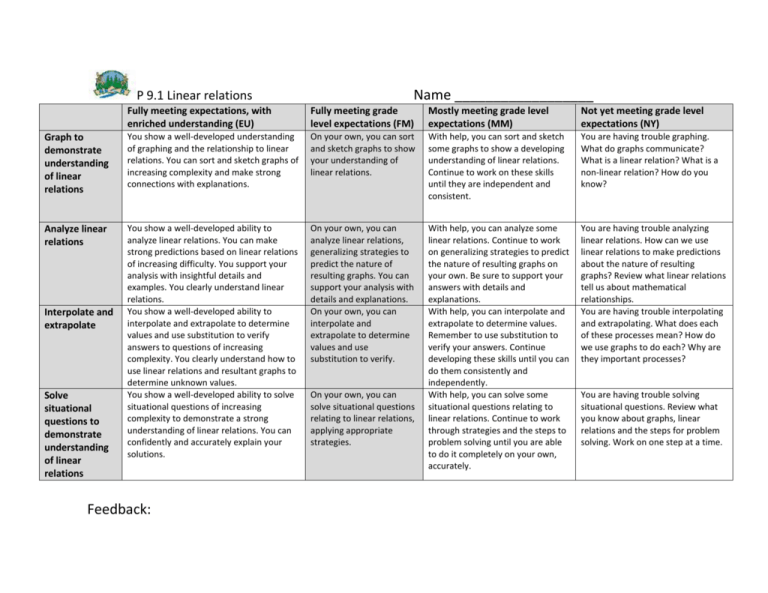
P 9.1 Linear relations Name __________________ Fully meeting expectations, with enriched understanding (EU) Fully meeting grade level expectations (FM) Mostly meeting grade level expectations (MM) Not yet meeting grade level expectations (NY) Graph to demonstrate understanding of linear relations You show a well-developed understanding of graphing and the relationship to linear relations. You can sort and sketch graphs of increasing complexity and make strong connections with explanations. On your own, you can sort and sketch graphs to show your understanding of linear relations. With help, you can sort and sketch some graphs to show a developing understanding of linear relations. Continue to work on these skills until they are independent and consistent. You are having trouble graphing. What do graphs communicate? What is a linear relation? What is a non-linear relation? How do you know? Analyze linear relations You show a well-developed ability to analyze linear relations. You can make strong predictions based on linear relations of increasing difficulty. You support your analysis with insightful details and examples. You clearly understand linear relations. You show a well-developed ability to interpolate and extrapolate to determine values and use substitution to verify answers to questions of increasing complexity. You clearly understand how to use linear relations and resultant graphs to determine unknown values. You show a well-developed ability to solve situational questions of increasing complexity to demonstrate a strong understanding of linear relations. You can confidently and accurately explain your solutions. On your own, you can analyze linear relations, generalizing strategies to predict the nature of resulting graphs. You can support your analysis with details and explanations. On your own, you can interpolate and extrapolate to determine values and use substitution to verify. With help, you can analyze some linear relations. Continue to work on generalizing strategies to predict the nature of resulting graphs on your own. Be sure to support your answers with details and explanations. With help, you can interpolate and extrapolate to determine values. Remember to use substitution to verify your answers. Continue developing these skills until you can do them consistently and independently. With help, you can solve some situational questions relating to linear relations. Continue to work through strategies and the steps to problem solving until you are able to do it completely on your own, accurately. You are having trouble analyzing linear relations. How can we use linear relations to make predictions about the nature of resulting graphs? Review what linear relations tell us about mathematical relationships. You are having trouble interpolating and extrapolating. What does each of these processes mean? How do we use graphs to do each? Why are they important processes? Interpolate and extrapolate Solve situational questions to demonstrate understanding of linear relations Feedback: On your own, you can solve situational questions relating to linear relations, applying appropriate strategies. You are having trouble solving situational questions. Review what you know about graphs, linear relations and the steps for problem solving. Work on one step at a time.
